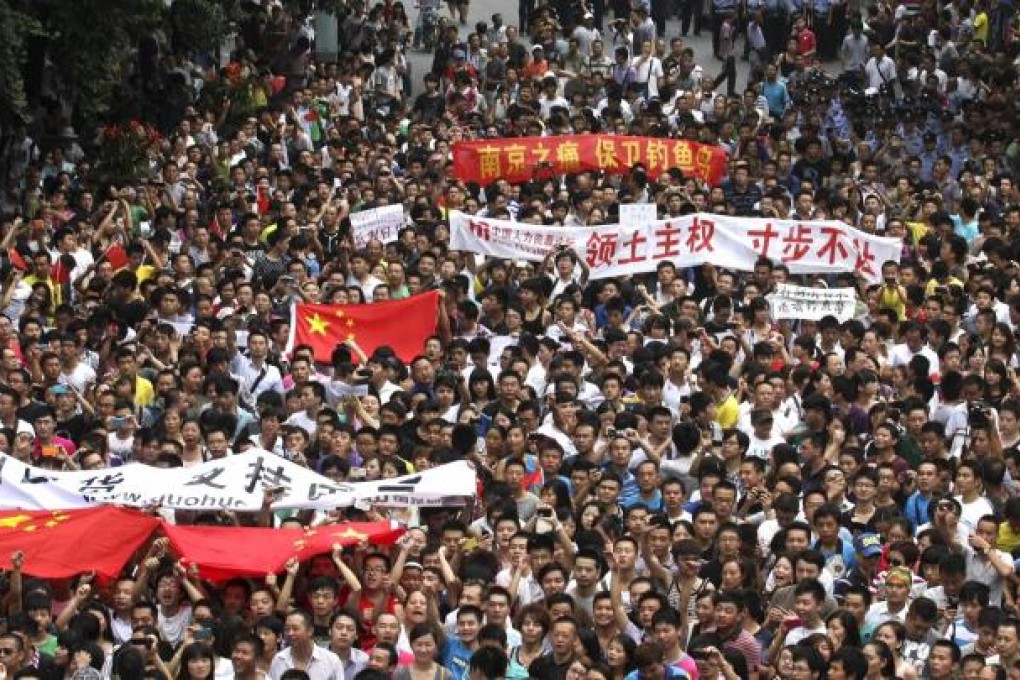Beijing approves anti-Japan protests while avoiding deeper row with Tokyo
Patriotic displays give officials a bargaining chip when dealing with Japanese, say analysts, as long as protests avoid Beijing and are not violent

The central government is adopting a two-pronged approach to the large-scale anti-Japanese demonstrations in major mainland cities - apart from in Beijing, according to analysts.
The government is giving tacit approval to the protests - held in response to Japanese activists setting foot on the disputed Diaoyu Islands, known in Japan as the Senkaku Islands - while refraining from tough diplomatic measures against Tokyo, they say.
Zhou Yongsheng, an expert on Japanese studies at China Foreign Affairs University, said yesterday the widespread anti-Japanese sentiment was so strong that even the central government had accepted that the protests could not be contained.
However, he said the government would quell violent protests in the run-up to the 10-yearly Party Congress this autumn, when new leaders are named.
"That's why the central government chose to let indignant civilians rally in various places to vent their anger," Zhou said, adding that suppression of non-violent protests was unlikely.
Chen Ziming, a Beijing-based independent political analyst, said the authorities were happy for the demonstrations to put pressure on Japan.
"I think Beijing wants to use the strong patriotic sentiment as a bargaining chip when dealing with the Japanese," he said.